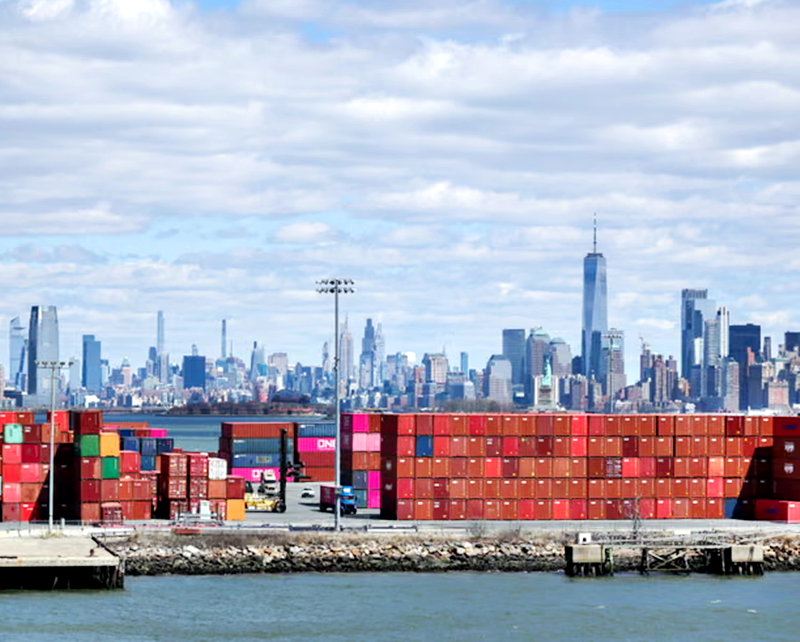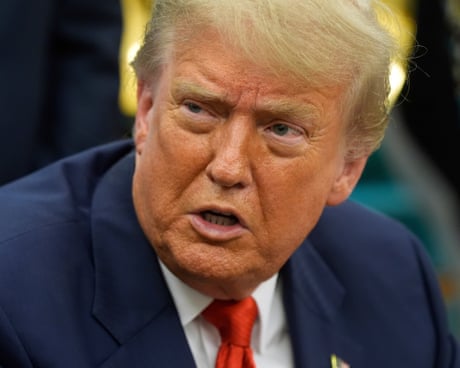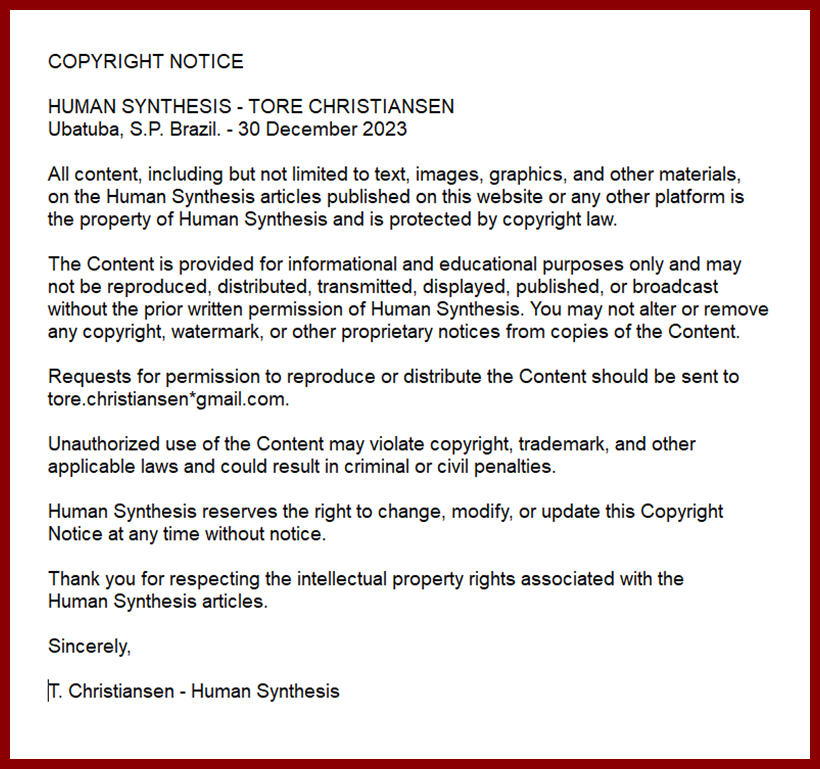Trump asks US supreme court to overturn trade tariffs ruling

By Guardian - Kollewe / Callum Jones - Thu 4 Sep 2025 09.01 BST
President challenging federal appeals court decision that ‘liberation day’ levies on imports overstepped his powers. Donald Trump has asked the US supreme court to overturn a lower court decision that most of his sweeping trade tariffs were illegal.
The US president filed a petition late on Wednesday to ask for a review of last week’s federal appeals court ruling in Washington DC, which centred on his “liberation day” border taxes introduced on 2 April that imposed levies of between 10% and 50% on most US imports and sent shock waves through global trade and markets.
The court found in a 7-4 ruling last Friday that Trump overstepped his presidential powers when he invoked a 1977 law designed to address national emergencies to justify his “reciprocal” tariffs.
The decision was the biggest blow yet to Trump’s tariff policies but the levies were left in place until 14 October, giving the administration time to ask the supreme court to review the decision.
Trump has now appealed and the supreme court is expected to review the case, although the justices must still agree to do so. The administration asked for that decision to be made by 10 September.
The appeal calls for an accelerated schedule with arguments being heard by 10 November, according to filings seen by Bloomberg. Justices could then rule by the end of the year.

The ruling that the tariffs were unlawful upheld a previous decision by the US court of international trade.
The federal appeals court said last Friday that US law “bestows significant authority on the president to undertake a number of actions in response to a declared national emergency, but none of these actions explicitly include the power to impose tariffs, duties or the like, or the power to tax”.
It said many of Trump’s steep tariffs were “unbounded in scope, amount and duration” and “assert an expansive authority that is beyond the express limitations” of the law his administration has leaned on.
The president swiftly hit back. “If allowed to stand, this Decision would literally destroy the United States of America,” he wrote on his Truth Social platform.
On Tuesday he called for an “expedited ruling” from the supreme court. Addressing reporters at the White House, Trump claimed the US “could end up being a third-world country” without tariffs.A defeat for Trump’s levies would at least halve the current average US effective tariff rate of 16.3%, and could force the US to pay back tens of billions of dollars, according to Chris Kennedy, an analyst at Bloomberg Economics. It could also derail the preliminary trade deals the president has struck with some countries, including the UK and the EU.
Tariffs typically need to be approved by Congress, but Trump claims he has the right to impose tariffs on trading partners under the International Emergency Economic Powers Act, which in some circumstances grants the president authority to regulate or prohibit international transactions during a national emergency.
Earlier this week, the US clothing brand Levi’s said “rising anti-Americanism as a consequence of the Trump tariffs and governmental policies” could drive British shoppers away from its denim. Other brands, such as Tesla, have also suffered in Europe and in Canada, while protests against US goods have led to a slump in sales of Jack Daniel’s whiskey.
A group of anonymous federal judges is criticizing the Supreme Court for overturning lower court rulings and siding with President Donald Trump's administration with little to no explanation, NBC News reported Thursday.
NBC spoke with 12 federal judges, appointed by Democratic and Republican presidents including Trump, who pointed to a trend of lower court decisions being overturned by emergency rulings from the high court. These cases often see prominent members of Trump's administration lashing out at lower court judges before their cases are overturned.
Ten of the 12 judges argued the Supreme Court should offer more explanation when overturning such decisions, saying emergency rulings in such cases imply poor work on the part of lower court judges.
"It is inexcusable," one judge said of the Supreme Court. "They don’t have our backs."
